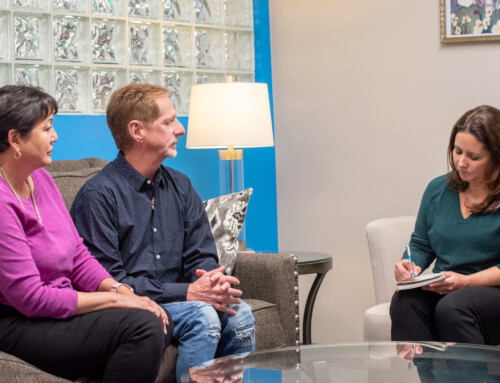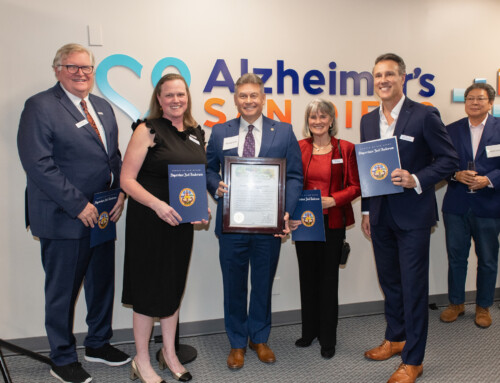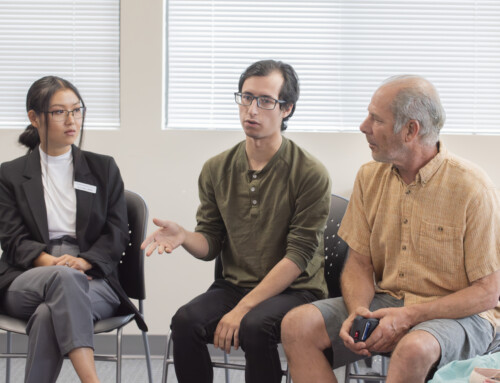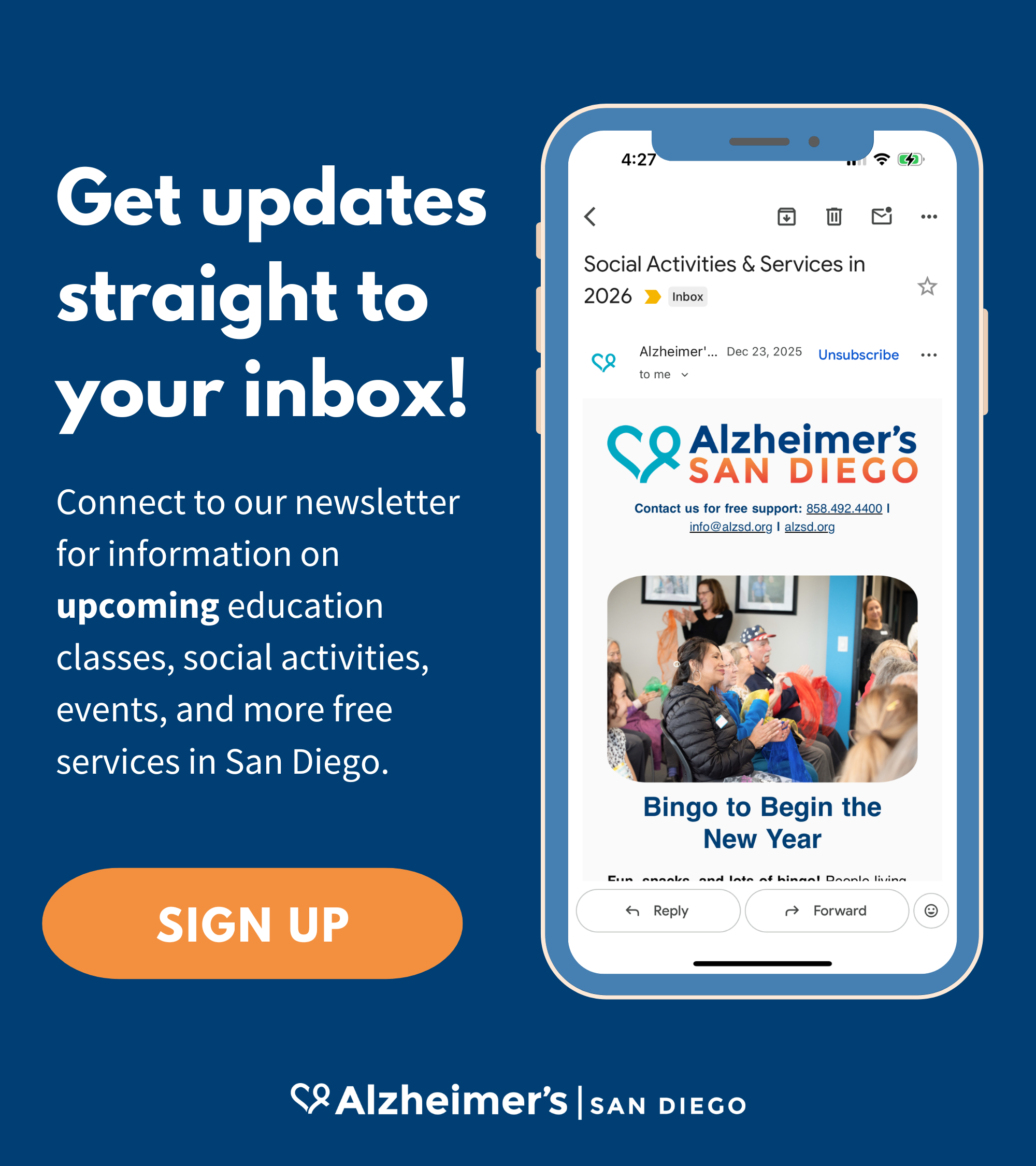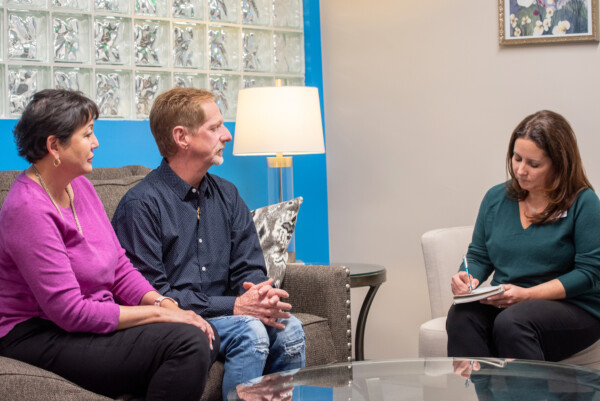
When dementia first occurs in people under the age of 65, it is referred to as “young-onset dementia.” As with older adults, Alzheimer’s disease is the most common form of dementia in this age group. Most cases of young-onset Alzheimer’s are caused by an inherited change in one of three genes, resulting in a type known as young-onset familial Alzheimer’s disease (FAD). For some people, the disease appears to develop without any specific, known cause.
Considerations for Coping with Young-onset Dementia
Receiving a diagnosis of young-onset dementia can be difficult, and it is important to take the process one step at a time. Consider the following after a new diagnosis:
- Learning more about the disease process and what changes will come can be helpful. Attend an education class or talk with a Dementia Care Coach at Alzheimer’s San Diego.
- It is important to recognize that this journey does not have to be taken alone. Build a network of friends, family, and professionals who can provide support and assistance.
- Planning early for the future is critical. Start financial and legal planning, including important medical documents, and clarify health insurance coverage.
For those who are working:
- If job performance becomes a challenge, consider talking to employers about switching to a less demanding role.
- To reduce stress, consider shortening working hours or taking time off or a leave of absence.
- Find out whether an employee assistance program or other employer-provided benefits are available. There may also be benefits under the Americans with Disabilities Act.
The Compassionate Allowances Program
Those diagnosed with young-onset dementia may choose to apply for disability benefits from the Social Security Administration (SSA) when working is no longer an option. In the past, this was a lengthy process involving a wait time of several months. Fortunately, people with young-onset Alzheimer’s disease and other dementia are now eligible to bypass the typical waiting period through the SSA’s Compassionate Allowances program. The purpose of this program is to expedite processing for people with conditions that clearly meet the SSA’s definition of a disability so they can quickly access financial benefits like Social Security Disability Insurance (SSDI) and Supplemental Security Income (SSI).
Several dementia diagnoses meet criteria for the Compassionate Allowances program, including:
- Young-onset Alzheimer’s Disease
- Frontotemporal Dementia (FTD; also known as Picks Disease – Type A)
- Lewy Body Dementia
- Mixed Dementias (dementia due to multiple etiologies)
- Primary Progressive Aphasia
- Progressive Supranuclear Palsy
- ALS Parkinsonism Dementia Complex
- Creutzfeldt-Jakob disease (CJD)
Individuals with one of these conditions can apply for benefits using the standard SSA process for filing claims for SSDI and/or SSI. SSA will expedite the application based on the person’s listed diagnosis. Applications may be filed online (www.ssa.gov), in a local field office, or by calling 800-772-1213.
Benefits Accessed Through Compassionate Allowances
Social Security Disability Insurance (SSDI) is a program designed for people who have worked and paid taxes into the Social Security system prior to receiving a diagnosis. For those considered disabled, SSDI benefits will be granted regardless of the individual’s assets or family income.
Supplemental Security Income (SSI) is a program for those who are 65+, blind, or disabled who have limited income and resources. SSI, unlike SSDI, is a “needs-based” program which is designed to help with basic living costs, even if the person hasn’t paid taxes into the Social Security system. To qualify for SSI payments, a person cannot have assets or family income over a certain limit.
Medicare is a national health insurance program that is available primarily to those over age 65. Those with young-onset dementia become eligible for Medicare after receiving SSDI benefits for 24 months. This includes Part A (hospital benefits), Part B (medical benefits) and Part D (drug benefits). Even if a person is healthy now, this process should be started as soon as possible to ensure that the individual will be covered for medical- related services over the course of the disease.
For more information on the types of dementia and personalized support, call us at 858.492.4400 to speak with our team who is here to help San Diego County and/or those caring for someone living in San Diego County (Spanish speakers available). Also check out our free education classes, social activities, caregiver support groups, & more.
RECOMMENDED: Is it Normal Aging or Alzheimer’s?
Posted on May 5th, 2025

